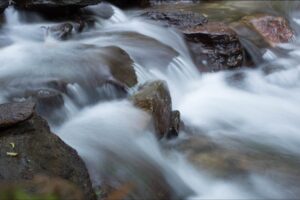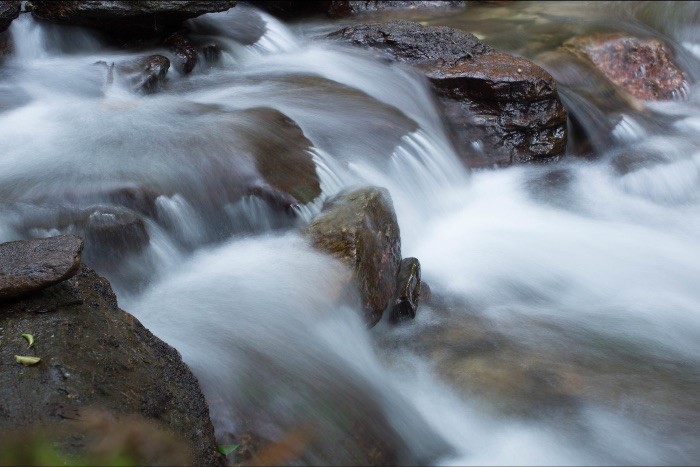Water for creation: protecting water for the sacred C’iyaal, C’waam and Koptu

The 3rd reflection of the Seven Weeks for Water 2021 of the World Council of Churches (WCC) Ecumenical Water Network is written by Jesse Cruz Richards.* The following reflection draws inspiration from the restoration of the Israelites from Babylonian exile as promised by Ezekiel, and from hopes and prayers for the restoration of the Klamath Tribes and other indigenous peoples of the Pacific Northwest to their rivers, waters and fishes, namely the C’iyaal, C’waam and Koptu.
Text
Ezekiel 47:9-11
Wherever the river goes, every living creature that swarms will live, and there will be very many fish, once these waters reach there. It will become fresh; and everything will live where the river goes. People will stand fishing beside the sea from En-gedi to En-eglaim; it will be a place for the spreading of nets; its fish will be of a great many kinds, like the fish of the Great Sea. But its swamps and marshes will not become fresh; they are to be left for salt. On the banks, on both sides of the river, there will grow all kinds of trees for food. Their leaves will not wither nor their fruit fail, but they will bear fresh fruit every month, because the water for them flows from the sanctuary. Their fruit will be for food, and their leaves for healing.
Reflection
Over the millennia, the Klamath Tribes and other indigenous nations in the Pacific Northwest have enjoyed a special spiritual and cultural relationship with rivers and oceans, and the fish that swim in them. For all, the fish and the water are sacred because they provide sustenance for all life. Though many tribes traditionally depended on the C’iyaal’s (salmon), the Klamath Tribes treasure two lake fish, the C’waam (Lost Lake sucker) and the Koptu (short-nosed sucker), which once served as mainstays of the Klamath diet and of others living in the upper Klamath Basin.
Tragically, over the past century, the Upper Klamath Lake has experienced pollution from agricultural and livestock operations, and this has resulted in algae blooms that suck oxygen from the lake and poison the water. Additionally, the continual draw upon rivers and creeks to fill the lake for irrigation and livestock watering has created chronically low water levels in the lake thereby cutting off access to spawning and rearing habitat. These industrial practices have decimated the formerly preindustrial habitat of these unique and precious fish – and both fish are in grave danger of extinction.
As stewards of the land and waters they inhabit, the Klamath Tribes have fought for decades to protect the C’waam, the Koptu, and the C’iyaal’s, alongside the Yurok, Hupa, and Karuk tribes who live down river. They have forged agreements with irrigators to share the water and with power companies to remove aging hydroelectric dams that block the salmon from migrating upstream. They have secured the most senior water rights on the river, based on their use of the water since time immemorial as well as the fishing rights they reserved in the Treaty of 1864. Yet, all of the fish remain in grave danger.
In the 1950s, the United States “terminated” the tribe and took their land. For a generation, the imperial, industrial, and ideological visions for a Christian America drove the American government to deprive the Klamath Tribes of federal recognition as a sovereign tribal nation. And when the United States restored recognition of the tribes more than three decades later, it did not, in fact, return their land. Indeed, the Klamath Tribes continue to live in exile from their ancestral lands and are deprived of the fish, game and timber that long provided their sustenance.
The Klamath Tribes continue their just fight for restoration of the Klamath salmon runs to save the C’waam and Koptu and to restore their healthy populations. They yearn to have their God-given land fully returned and restored so they can live independently and be liberated. While they continue to struggle, living on the hope that the American government will someday honor its promises to them; they also hold out hope that someday they will inhabit their restored land.
When Ezekiel promised the exiles that God would allow them to return to Jerusalem someday to rebuild their temple, he envisioned fresh waters flowing freely, restored cultural and religious practices, as well as fish and trees of all varieties. The fish and fruit for food and leaves for healing would be their sustenance. We pray that the God of all nations will bestow Ezekiel’s promise on the Klamath Tribes and other indigenous nations of the Pacific Northwest. We pray for resolve and peace in their hearts until their call for justice is heard and answered. And we stand in solidarity with these sovereign tribes who have been irreparably harmed by Christian colonialism, American imperialism and Protestant capitalism. We pray that, once again, the rivers will flow freely around their lands, that the rivers will again sustain the fish and all life that is dependent upon them, and that, once again, the people will have fish and fruit for food and leaves for healing.
Questions for discussion
- Does our culture foster the sense of personal and collective responsibility for stewardship of Creation that is common among indigenous peoples? If not, how can we engender that sense of responsibility?
- Both western science and indigenous spirituality recognize the interconnectedness of all Creation and understand that damage to any part of the creation can cause far-reaching damage beyond what we know. How can we cultivate this sense of infinite interconnection and mystery in an ethical approach to Creation in the face of the unknown?
Actions
- Find out what environmental issues are being raised by indigenous peoples in your area. Contact their leaders to learn how you and other members of your congregation can help.
- All creation are interconnected. Damage to one part of the creation can cause far-reaching damage beyond our comprehension. How can we cultivate a sense of this infinite interconnectedness and mystery of Creation?
- Explore how you can promote indigenous spirituality through your churches.
Resources
- More about the Klamath Tribes and their work to save their fish: https://klamathtribes.org/
- Role of indigenous peoples: Tending the Wild: https://youtu.be/TbxLv9EEzs8.
- The battle to save the PNW salmon: https://earthjustice.org/advocacy-campaigns/save-wild-salmon
* Jesse Cruz Richards is the director of Development and Policy Coordination of Willamette River Network. He is a network-builder at heart who cares deeply about the historic ecumenical tradition. The son of a refugee mother and a rural Oregonian father, Richards is the first in his family to enter college and complete graduate school having obtained a liberal arts degree from Acadia University and the University of Oxford, where he studied history, philosophy and theology.

